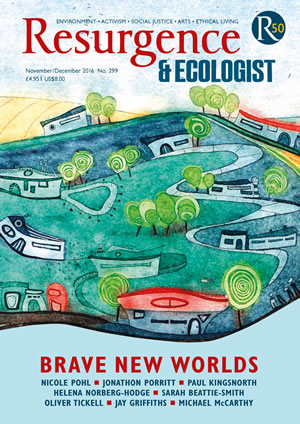Imagine the thrill of winning the Pulitzer Prize at just 28, the youngest American woman to do so. And then a deep, visceral pressure to keep step. Yet, since her prize-winning memoir, Pilgrim at Tinker Creek (1974), Annie Dillard has negotiated all expectations, cast off any strain, and produced catalysing and genre-busting novels, reviews and essays as well as poems.
Her latest offering, The Abundance, is an anthology – nothing much new, but I’m joyous for it all, every one of these iconic 22 essays. The book springs to life with a quote from the Qur’an: “They will question thee concerning what they should expend. Say: The Abundance.” In the essay A Writer in the World, Dillard brings us closer to her core, expressing what she perceives, not only about writing, but about life and living it to the full: “Spend it all, shoot it, play it, lose it, all, right away, every time. Don’t hoard… Anything you do not give freely and abundantly becomes lost to you.”
For 21 years, Dillard was a lecturer in the English department at Wesleyan University, Connecticut. What a boon, to have her as one’s mentor, guide, agent provocateur. These snippets are gifts. She’s funny too, though her work is not lightweight. She calls it metaphysics; all her incantations dance with the deepest questions, of life, living, beauty and our place in space and time. Ordinary phenomena are transformed into the miraculous; daily occurrences morph into the transcendental.
In Dillard’s opening shot, Total Eclipse, she contrasts the spectacular workings of the cosmos with our own ordinariness. We gather like lambs to the mountain. There is ritual in our gaze toward the heavens, an ancient reverence, though perhaps dissipated by modernity, cameras, lenses. The partial is crucially different from the total, Dillard stresses. The effects on our sensibilities are profound.
In her closing piece, An Expedition to the Pole, she juxtaposes the history of polar exploration with a visit to a Catholic church, where, left field, the Mass is sung by a choir named Wildflowers. There is a childlike curiosity here, as the reader is swept from a noisy sanctum to the vast, quiet wilds of the Arctic: “My name is Silence.” Then back to the tambourine-playing. Threads weave together.
Most of her work is in the first person, observational, as if phenomena need meticulous examination with all the senses. She is frank, and her words are vibrant. Even in the portrayal of death, Dillard conjures a deep imprint of colour and form.
In interviews, she has referred to having a masculine mind and a boy’s arm. (She played baseball into her fifties.) She says she’s influenced by many male writers – Greene, Hardy, Thoreau. But I don’t see her work as anything more or less than rich and feisty. If a woman is to be known well, it’s her authentic self. Annie Dillard is a unique voice.
There is pattern to it – a fact or an observation is followed through, like a mind map. But it is in her verbal vignettes, one after another, that the paragraphs sizzle. There’s three-dimensionality in her perceptions.
In The Abundance there is a relentless energy, as Geoff Dyer, in his foreword, alludes when he says: “Dillard can only be enjoyed by a wide-awake reader.” Read in broad daylight, with the windows open and a fresh breeze racing through. She’ll guide you into her world, encounters with Nature, people as Nature. And she’ll divide new with old, inserting time into place, with creative demolition and intimate salvage. If you haven’t read Annie Dillard before, this collection is your gateway. Let her teach you.







